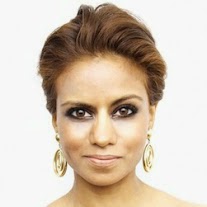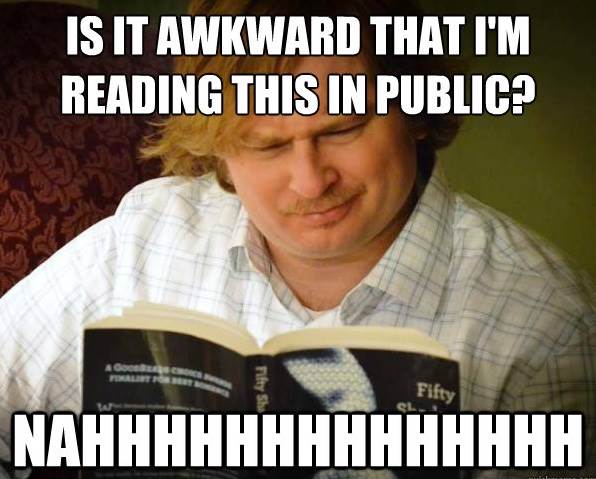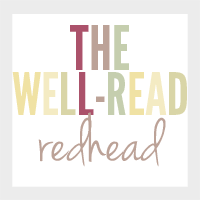Title: The 3-Day Reset
Author: Pooja Mottl
Publisher: Seal Press
Publication Date: April 29, 2014
Source: copy received for honest review through TLC Book Tours
Plot Summary from Goodreads:
Eating healthy can be a struggle. It’s hard to pick broccoli and brown rice over hot, cheesy pizza, and 21- or 28-day diets often ask you to cut out different foods all at once, leaving you feeling deprived.
In 3-Day Resets , Pooja Mottl outlines 10 different ways to change your cravings and start eating whole, healthy foods—foods that are also delicious—three days at a time. Each reset takes 72 hours to complete and consists of three simple steps, which means you’ll be able to stay focused on healthy eating.
“Awareness” resets target your consumption of certain ingredients like sugar, wheat, and salt.
“Discovery” resets teach you new ways to drink beverages (including tea) and eat chocolate, yogurt, and chicken.
“Change” resets shift how you view eating breakfast, salads, and take-out.
Packed with delicious recipes and nutritional information to support why you should eat whole foods like quinoa instead of processed, frozen, or packaged foods, 3-Day Resets will set you on the path to healthy eating… and help you stay there for good.
My Review:
This book review is going to be a bit different than my others. You may remember my "teaser" post about this book back in May. Since then, I've read the book and actually tried one of the resets for myself--because what better way to review it, than to actually do it?? As a result, I'm going to take you through my experience with the 3 Day Reset that I tried (sugar!) and let that frame my commentary on the book. I will detail one full day of the reset, and then summarize the other two (for length's sake!).
Just to remind you what this reset entailed: cut out ALL refined sugar for three days. The purpose is not to have you give up processed sugar for the rest of your life. Instead, it's meant to show you how your body can react (in positive ways) to less refined sugar. According to Mottl, your taste buds should start to better appreciate the natural sugars in things like bananas, apples, etc. and make you less inclined to jump for candy, cookies, etc. Plus, it will just make you more aware of what everyday foods contain sugar, because you'll be more conscious of it. Mottl actually suggests using an 80/20 rule after the reset (eat without refined sugar 80% of the time, while the other 20% is your wiggle room). In this day and age, it's very hard to subsist without any refined sugar EVER, and I'm glad the book acknowledges this.
Okay, so...3-Day Sugar Reset: GO!
I actually started this reset on May 27--the day after Memorial Day. Why? Because I ate TOTAL AND COMPLETE CRAP for the entire Memorial Day weekend. What better time to reset my eating habits? I topped it off with some pizza and wings for dinner on Monday night, then had 2 bite size pieces of Hershey's chocolate for dessert before saying siyonara to refined sugar for 3 whole days.
Let's talk for a quick minute about shopping for this reset. I wanted to make a couple of the recipes that Mottl suggested (namely 2 desserts that do not include refined sugar), so I went to my beloved Wegman's to pick up the ingredients the night before. This included dates, raw honey, Sucanat, coconut milk, and cacao powder. It took me FOREVER to find them...I was going totally insane in the "Nature's Marketplace" area of the store for almost 45 minutes. But I did find them, and now that I know where they are, hopefully they will be easier to find again, Even though this was a total pain in the butt (and not at all something I could have done with the kids--thank goodness I was alone), I am glad that I got better acquainted with this area of the store.
Tuesday, May 27: I woke up at 5:30am to do my morning run. Normally, I down 1/3 of a Clif bar and a bunch of water before a morning run, but the label on the Clif Bar said it contained organic cane syrup and a few other things that sounded an awful lot like sugar, so I skipped it (still not sure if that is OK for the reset or not?). I ate some raw almonds instead. Seemed to do the trick!
Breakfast was rough. I normally eat a bowl of oats and honey cereal that is decidedly FULL of sugar. Today, I switched it up and made scrambled eggs (for both me and Small Fry), topped with cheddar cheese, plus some strawberries on the side. I was even super good and did away with the ketchup I normally dip my eggs in (has high fructose corn syrup). I also had my morning cup of coffee, which I sweetened with Sucanat (dehydrated whole cane sugar) instead of table sugar. I honestly didn't notice a flavor difference at all.
I had a peach for my morning snack. This was a wake-up call, because normally I grab a pre-packaged cereal or granola bar when I am out and about with the kids, but that wasn't going to fly today. Had to really make a conscious effort to avoid them! Also, so hard not to automatically finish off Small Fry's snacks when he doesn't finish them. It's amazing how much more conscious this made me of the things I absentmindedly stick in my mouth each day.
Lunch, another tough one. I usually make a sandwich of some kind, but our bread has brown sugar in it! So instead, I made this really yummy southwestern bean salad that I found a recipe for at Wegman's. It was delicious, filled me up no problem, and made enough to have more tomorrow. Score.
Afternoon snack: raisins. I wanted chocolate in the worst way after lunch!! This was definitely the hardest time of day for me to resist the sugary stuff.
Dinner, my husband was making chicken quesadillas, but the tortillas (and the taco sauce) had sugar in them. So, he set aside my portion of the chicken and I put it on top of a big salad instead. Which I dressed with oil-and-vinegar instead of my usual bottled balsamic vinagrette.
After dinner, I decided to try one of Pooja's suggested refined-sugar-free desserts. I made a strawberry mousse, which consisted of strawberries, avocado, cacao powder, Sucanat, and coconut milk. Throw it all in the blender and DONE. It was SO GOOD. My husband agreed, though Small Fry totally hated it. Which made me a little sad, because I think when he heard "chocolate" and "dessert" his palate was totally expecting a Hershey's-type flavor. I think he would have enjoyed this if he wasn't so accustomed to the processed sugar of regular chocolate. Oh well. Something to work on.
Day One: COMPLETE!
I won't give you as detailed of an analysis with the other two days (this post would be tooooo long), but I'll summarize it like this: the reset was good because it made me SO much more aware of how much sugar I eat on a daily basis (hint: way too much). It also pushed me to start reaching for healthier snacks during the day, because that definitely showed itself to be my sugar-weakness (moreso than meal times). That is a change that I was able to make long-term (still doing that now, a month later).
However--I found that a full switch to no processed sugar (even at an 80/20 ratio) was very difficult for me. I think a lot of it is lifestyle--rushing around all day with two kids, one of whom is a VERY picky toddler (hi, the only vegetable he will willingly eat is a carrot, and that's only because Sven eats them in Frozen), makes it hard for me to avoid a lot of processed sugar. If I'm being 100% honest, I just don't have it in me right now to research and try a bunch of new dinner recipes, which is what would have to happen for me to really follow this lifestyle change. However, because the reset made me more conscious of the sugar issue, I am making a better effort to avoid the sugary "extras" in my meals (salad dressings, sauces, etc.).
Another thing to note: I didn't find that the reset turned me off to the overly-sweet nature of table sugar (as Mottl had said might happen). My first day after the reset, I ate an Oreo expecting to feel nauseous afterwards. But you know what? I didn't. It was good. Oreos will always be good. So that part definitely didn't happen for me...haha.
After reading through the rest of the resets, my guess is that (at least for me), my results would be similar. The bottom line is this: I think that The 3-Day Reset is a great way to make you more conscious of your eating habits. Even though I have not sworn off sugar for good, my reset made me more aware of the high amount of sugar I ate on a daily basis, and as a result, I have definitely made changes to my snacking habits. That's a change that has been helpful and sustainable for me. I also learned two new great recipes for desserts that I have occasionally turned to at night for something sweet, instead of my usual ice cream or cookies. However, a lifestyle of 80% no sugar/20% sugar (recommended after completing the reset) is difficult for me to sustain--you will need to make a very conscious effort to do so, and I think if you combine this change with some of the other resets, you're going to find that your diet needs a major overhaul. I think it would be a possibility if I was single, and had lots of time to grocery shop and avoid the foods in these resets (sugar, wheat, salt, etc), but I'm not and I don't.
Even if the results were not 100% for me, I definitely recommend giving The 3-Day Reset a try! It helped me make some important changes to my diet, and its important reminders about eating whole foods have stuck with me long after I finished my reset.
As always, much thanks to Lisa and TLC Book Tours for including me on this tour!
Check out the other blogs on this book tour HERE. And connect with Pooja Mottl on her website, Twitter, Instagram, and Facebook.

















